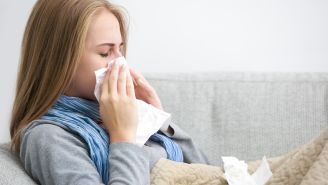About one in ten people are carriers of meningococcal bacteria, the bacteria that cause meningococcal disease. Carriers do not show any symptoms of disease and can unknowingly transmit bacteria to others through saliva and respiratory droplets (though not as easily as a cold or flu). Meningococcal bacteria are categorized into different groups, called serogroups. Bacteria in serogroup B cause meningitis B (MenB).
While people of all ages can get MenB, certain groups are more at risk. The majority of cases occur in children younger than one year. Older teens and college-age young adults also make up a significant percentage of patients—and a number of outbreaks on college campuses have occurred in the past decade. This is due in part to the fact that some habits and behaviors that are common among older teens and college-age young adults can promote the transmission of MenB.
Here are some common ways that MenB can be spread among this age group:
- Sharing utensils, makeup, or other items: Using the same water bottle as a friend, borrowing some lip balm, or sharing a towel can increase the risk of meningococcal bacteria being passed from one person to another.
- Living in close quarters: Because the bacteria that cause MenB are highly contagious and affect teenagers and young adults, it has the potential to cause local epidemics on college campuses and other places where young adults are living in close proximity to one another.
- Kissing: Intimate behaviors such as kissing can facilitate the spread of the disease if someone is infected.
- Touching your face: In a single day, the average person touches their face multiple times, often without thinking about it. We may rub our eyes when we’re tired or bite our nails when we’re nervous. Unfortunately, the sinuses, throat, eyes, and ears are potential gateways for bacterial meningitis (as well as other infectious agents). And although the bacteria don’t survive outside the body for very long, it’s still a good idea to wash your hands with soap and water throughout the day, especially after being around large numbers of people.
The importance of a healthy immune system
In general, some basic habits—such as getting sufficient sleep, exercising regularly, and maintaining a nutritious diet with plenty of fresh fruits, vegetables, and whole grains—can help keep the immune system strong. Limiting unhealthy behaviors like smoking and drinking alcohol is also important.
In addition, the MenB vaccine can help protect against infections with the bacteria that cause meningitis B. The vaccine is preferably administered between the ages of 16 and 18 years. You can talk to your teen’s healthcare provider to learn more about vaccination options and other ways to help keep your teen safe and healthy.







